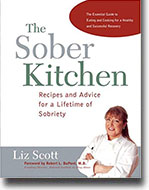
Sobriety is much more than not using alcohol and illegal drugs. Stopping alcohol and drug use is the easy part of sobriety. Every alcoholic and drug addict has stopped, as Mark Twain said about cigarette smoking, hundreds of times. The hard part of being sober is creating a whole new life that does not revolve around getting high on alcohol and other drugs.
Sobriety is also not what people who have never had an alcohol or a drug problem do. As a practicing psychiatrist, I have been permitted into the inner lives of thousands of patients over the years. One of my patients, a woman physician who suffered from Obsessive-Compulsive Disorder (OCD), lost her husband of 25 years to a rapidly developing colon cancer when she was 55, just when she was looking forward to her golden years with her soul mate.
This woman had never been addicted to alcohol or drugs. In her darkest hour, she did not turn to me or to another therapist for help. She turned for help to her friends in recovery from addiction. Later I asked her why she did that. Here is what she told me: “People who have confronted addiction and built sober lives in recovery are not like other people. They have fallen to the depths of human suffering and pulled themselves out.
To do that, they have had to understand life and their limitations, as well as their abilities, in whole new ways. They have a well-tempered wisdom that people not in recovery seldom achieve. I was sure that I could find in my friends in recovery the experience, strength, and hope that I needed to go on after my devastating loss.” Unless you understand this womans logic, you dont get what it means to be “sober.”
Liz Scott not only gets it at a deep level, but she has also brought her passion for foodcooking it and eating itinto the lifelong process of recovery. She understands that one of the central elements of a sober life is a healthy relationship with food. This is especially to be treasured after the disordered relationships with food that characterize almost everyone addicted to alcohol and other drugs. In the misery of addiction, healthy eating is an early casualty.
The great discovery of Bill Wilson, the founder of Alcoholics Anonymous, was that the only way he could stay sober was to help suffering alcoholics. That is the twelfth of the twelve steps. Bill Wilson should have gotten a Nobel Prize for that discovery. He didnt. Instead, his prize was helping millions of alcoholics get wella far bigger reward than the one given in Stockholm each year. Liz Scott understands this principle of recovery. Honoring it, she is passing on in her book what she has found useful about food to help people in recovery build and sustain healthy, happy, sober lives.
In this wise and loving book there is a road map for a sober relationship with food and with ones own body. Liz Scott writes with an unmistakable sense of the joy that comes from escaping that dark and lonely trap of addiction. The experience of addiction makes the discovery of healthy eating all the more precious to her and her readers.
Many people in the grip of addiction cannot imagine a sober life. They see nothing but losses as they contemplate giving up their abusive loversthe alcohol and other drugs that have decimated their lives for years. This book is a powerful antidote to that hopeless attitude. It radiates the love of the sober life. This book celebrates the little miracles that are all around us every day, surprising and beautiful miracles that cannot be seen through the dense fog of active addiction. Liz Scotts book is one of those little miracles.
Author: Liz Scott
Year of Release: 2003